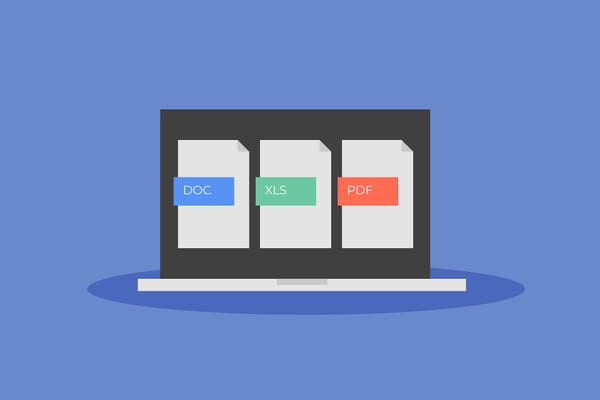Should Small Business Owners Get Cyber Insurance?

For modern businesses, the biggest risks aren’t physical anymore. A single cyber-incident can have devastating consequences, sometimes forcing a company to shut down completely.
One safeguard is cyber insurance, which helps businesses recover from major financial losses caused by cyberthreats like social engineering scams, ransomware and breaches.
Small businesses, however, often focus their budgets on growth—reinvesting in their company, supporting employees, and improving products or services. In the process, cybersecurity (solutions and insurance), an essential part of long-term success, can be overlooked.
For entrepreneurs, the question is: is it worth the cost?
The reality is that the cost of dealing with cyber incidents keeps climbing. Businesses increasingly rely on technology to operate, while cybercriminals are launching more frequent and sophisticated attacks. According to ICAEW’s 2023 report, cyber incidents have been the top business risk for five years running.
What is Cyber Insurance?
Cyber insurance—sometimes called cyber liability or cyber security insurance—is a type of policy that helps businesses recover from the financial impact of cyber incidents. The best policies provide protection against various threats, such as ransomware attacks, data breaches, and system downtime and cover a wide range of costs, including operational disruptions, legal fees, reputational damage, remediation efforts, and regulatory fines.
As businesses increasingly depend on technology, their digital assets—like client records, business data, and operational systems—become more valuable but also more vulnerable. Protecting these critical resources should be a top priority, but managing this alone can be overwhelming.
That’s where cyber insurance steps in, coming usually with expert support to help businesses respond effectively when issues arise.
Related: How to Check If Your Business Is Affected by a Breach (And What to Do if It Is)
Why Cyber Insurance?
Risk Mitigation
Cyber insurance doesn’t replace strong cybersecurity practices—it complements them.
It helps businesses manage the financial impact of a cyber incident by sharing the burden with an insurer.
The costs of a cyber incident can add up fast and depend on factors like the type of attack, the size of the business, and the downtime involved. Typical expenses include:
- Expert incident response and guidance
- Legal and regulatory fees
- Privacy breach notifications
- Digital forensic investigations
- Stolen funds
- Ransom payments
- System repairs and rebuilds
- Data recovery
- Income loss from downtime
- Third-party liability claims
- Regulatory fines and penalties
While strong cybersecurity practices remain essential, having a policy offers a safety net for potential financial losses and a partnership with an experienced provider can be invaluable during crises.
Related: Small Business Ransomware: What You Need to Know and How to Stay Safe
Types of Cyber Insurance
Cyber insurance generally falls into two categories: first-party coverage and third-party coverage.
1. First-Party Cyber Insurance
This type of coverage helps businesses recover from financial losses they face directly after a cyber incident. It’s designed to protect your business when its own systems or data are affected.
Here’s what it typically covers:
- Incident Response: Support and advice during a cyber event, including legal guidance, removing malware, investigating the cause, and notifying people if their data was breached.
- System Damage and Downtime: Restoring your computer systems and data, and covering lost income while systems are down.
- Cybercrime: Recovering stolen funds (e.g., from hackers or scams), and even reimbursing ransom payments if needed (but highly controversial as it is not recommended to pay attackers).
Related: Case Study: Ransomware Attack Hits a Small Clinic
If your business relies on computers, stores sensitive data, or transfers money online, first-party coverage is a smart choice.
2. Third-Party Cyber Insurance
This type of coverage protects your business if someone else (like a customer or client) sues you because of a cyber incident involving their data or systems.
Here’s what it usually covers:
- Damages: Costs you’re legally required to pay to others.
- Legal Fees: The expense of defending yourself in court, including paying the other party’s costs if needed.
- Fines and Penalties: Regulatory fines for failing to protect data properly.
This type of insurance is especially helpful for businesses that handle sensitive client data or manage customer systems, like tech companies, financial institutions, healthcare providers, and retailers.
Related: How Remote Employees Can Cause a Data Breach of Your Small Business Data (And How to Prevent It)
How Cyber Insurance Works
1. Application Process
When you apply for cyber insurance, the insurer evaluates your business’s cyber risk. This often involves analyzing your security practices and identifying potential vulnerabilities. The goal is to provide coverage tailored to your specific risks.
- What’s Covered
Cyber insurance policies cover a wide range of cyber risks, such as:
- Cybercrime, like data breaches or ransomware.
- Incidents caused by employee mistakes.
- Attacks by rogue employees or insiders.
However, most policies don’t cover:
- Pre-existing incidents (issues that happened before you got the policy).
- Costs to upgrade or improve your systems.
- Cyber events caused by ignoring known vulnerabilities.
3. Filing a Claim
If a cyber incident occurs, the claims process usually follows these steps:
- Report the Incident: Notify your insurer through an app, email, phone, or website—often available 24/7.
- Initial Support: A technical expert quickly assesses the situation, providing advice to contain the issue and minimize damage.
- Claims Management: A dedicated claims handler works with your team to guide the process and coordinate with external partners if needed.
- Updates and Closure: Regular updates are provided throughout, and a final report summarizes what happened and how it was resolved.
Costs and Premiums
The cost of cyber insurance can vary, but one thing is clear: the premiums are much more affordable than the potential cost of dealing with a cyber incident. Investing in cyber insurance can save your business significant financial stress in the long run.
Here are the key factors that influence the cost of a policy:
- Business Size and Industry: Larger businesses or those in high-risk industries (like finance or healthcare) may pay more.
- Annual Revenue: The more your business earns, the higher your potential exposure—and the premium.
- Sensitive Data Volume: Businesses handling large amounts of personal or financial data are seen as higher risk.
- Cybersecurity Posture: Strong cybersecurity measures can lower your premium, as they reduce the risk of incidents.
- Prevention Services Included: Some policies include proactive services, like threat monitoring, which can influence the overall cost.
Cyber insurance provides peace of mind, allowing you to focus on growth and innovation without worrying about the unexpected. But it’s important to note that insurers often require businesses to have solid cybersecurity measures in place. So the first step is to make sure you choose the best cybersecurity solution for your company. If you own a small business with up to 25 employees, take a look at Bitdefender Small Business Ultimate Security.
It's an all-in-one solution designed to provide exceptional protection against all digital threats for you and your employees.
Here's what it offers:
- Email Protection: Automatically scans and blocks phishing emails, suspicious links, and fake invoices, preventing employees from clicking on malicious content.
- Scam Detection: The Scam Copilot monitors emails, texts, and chats for signs of fraud. It alerts you and your team to potential scams and offers real-time guidance on how to handle them.
- Password Management: Simplify security with Password Manager, which generates strong, complex passwords that align with best practices.
- Secured Remote Work: A built-in VPN ensures your team is protected from unsafe public Wi-Fi networks, like those in coffee shops or airports. It guarantees secure communication between remote employees and your business systems.
- Device Protection: Provides real-time detection and blocking of malware, including viruses, ransomware, and spyware, across all your team's laptops and smartphones.
- Digital Identity Monitoring: Keeps an eye on your business's online presence, alerting you to data leaks, unauthorized use of your business name, or exposure of sensitive information—even on the dark web and breaches.
Check out the plans here.
FAQs
What does cyber insurance cover for small businesses?
Cyber insurance typically covers financial losses resulting from cyber incidents, including ransomware attacks, data breaches, and system downtime. Policies may include coverage for incident response, legal fees, regulatory fines, data recovery, and business interruptions.
Do I need cyber insurance if I already have strong cybersecurity measures?
Yes, cyber insurance works alongside your cybersecurity measures to provide an extra layer of protection. While strong security reduces your risk, cyber insurance helps cover financial losses and provides expert support in case an incident occurs.
How can I qualify for a cyber insurance policy?
To qualify for cyber insurance, most insurers require businesses to demonstrate good cybersecurity practices, such as using advanced security solutions like Bitdefender Small Business Ultimate Security, training employees to recognize threats, and keeping systems up to date.
Is it worth having cyber insurance if I have a small business?
Yes, cyber insurance is worth it for small businesses. Cyber incidents, such as ransomware or data breaches, can result in significant financial losses that many small businesses might struggle to recover from. Cyber insurance provides financial protection and expert support, helping your business recover quickly and continue operating.
tags
Author
Cristina is a freelance writer and a mother of two living in Denmark. Her 15 years experience in communication includes developing content for tv, online, mobile apps, and a chatbot.
View all postsRight now Top posts
How to Protect Your WhatsApp from Hackers and Scammers – 8 Key Settings and Best Practices
April 03, 2025
Outpacing Cyberthreats: Bitdefender Together with Scuderia Ferrari HP in 2025
March 12, 2025
Streamjacking Scams On YouTube Leverage CS2 Pro Player Championships to Defraud Gamers
February 20, 2025
How to Identify and Protect Yourself from Gaming Laptop Scams
February 11, 2025
FOLLOW US ON SOCIAL MEDIA
You might also like
Bookmarks







